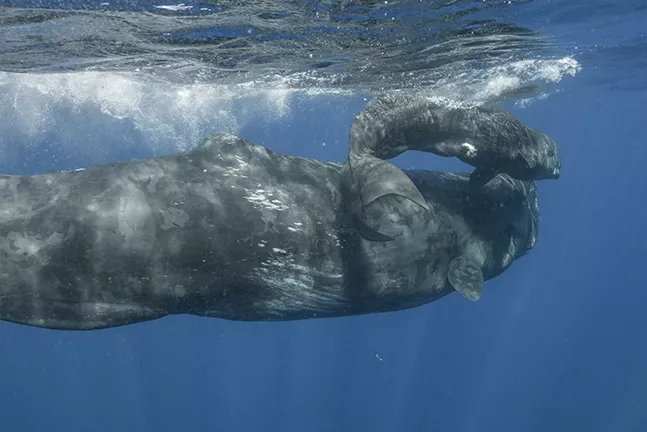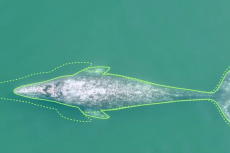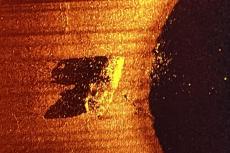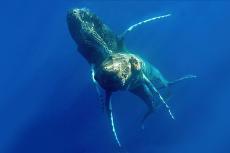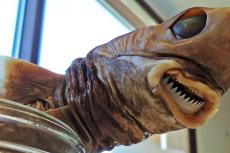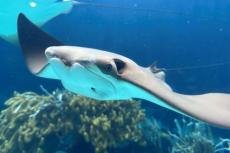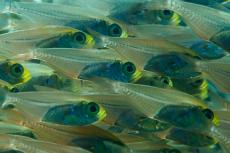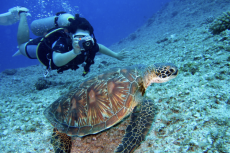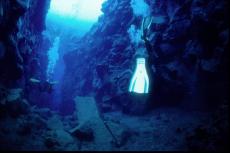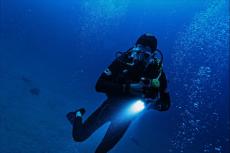Sperm whales arrange for babysitters
Mother sperm whales use organised babysitting sessions so they can go hunting for food, scientists have discovered. When sperm whales dive deep for food, who looks after their young who cannot follow?
Sperm whales are one of the deepest diving whales on the planet and make dives of more than 2000ft below the ocean's surface lasting up to an hour while they search for the squid they feed on.
The calves, however, cannot make these dives and have to remain at the surface. This leaves the calves vulnerable to killer whales which often follow pods of sperm whales to prey upon.
Researchers from Dalhousie University in Nova Scotia, tracked two populations of sperm whales in the Caribbean and Sargasso seas to see what happened when mother whales dived for food.
The Sargasso mothers formed a babysitting circle, taking it in turns to watch over other calves and go hunting themselves. The babysitters even allowed the other mums' calves to nurse if they were hungry.
The smaller Caribbean population had fewer mothers, so calves were left with a close female relative instead.
"Among sperm whales, having extra eyes in a group to look out for killer whales is in everyone's interest since group members are not easily replaced," says Richard Connor, an expert in cetacean behaviour at the University of Massachusetts, Dartmouth. "This benefit of having a larger group may also be a reason why adults readily look after one another's young," he says.
- Log in to post comments


